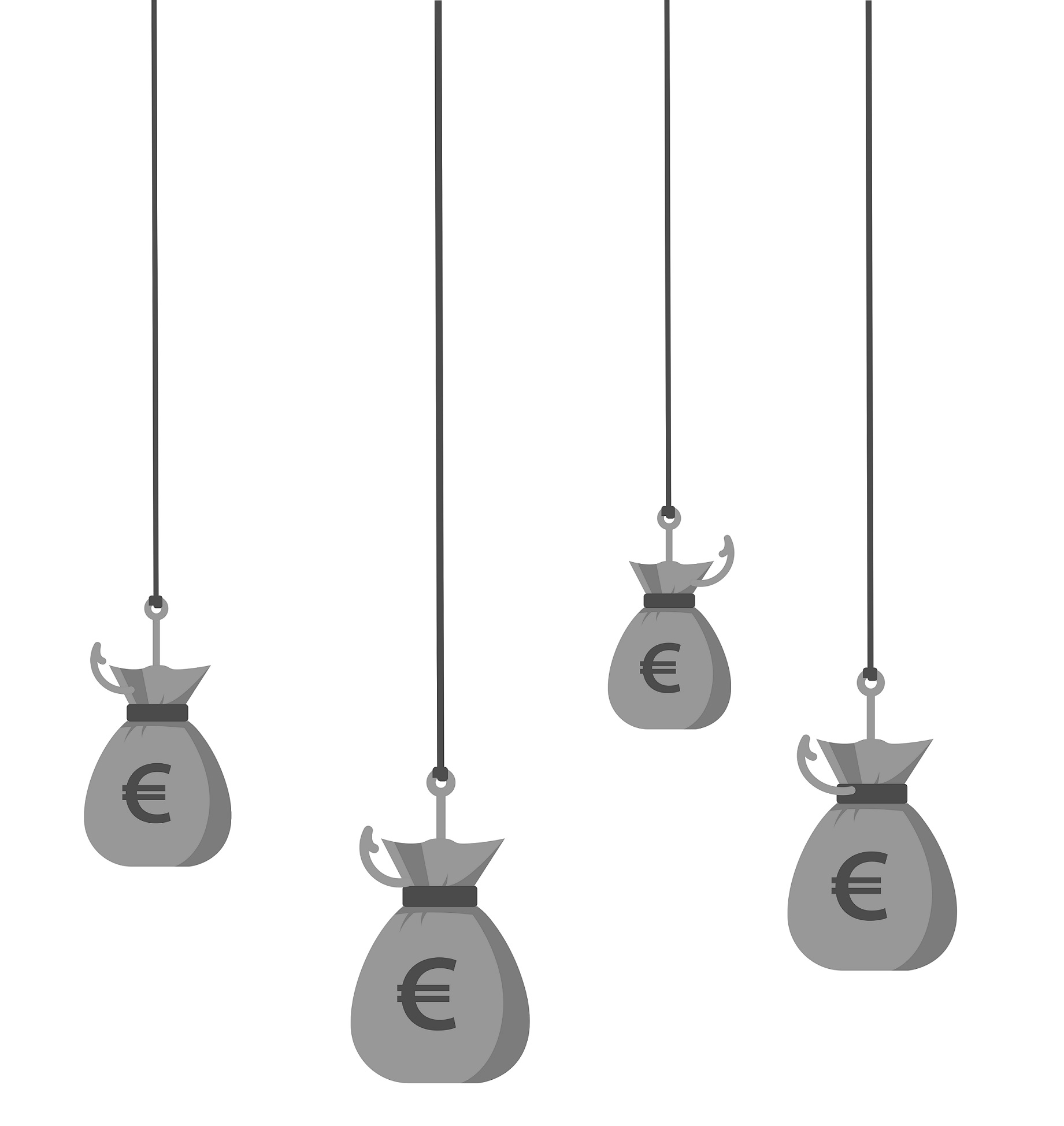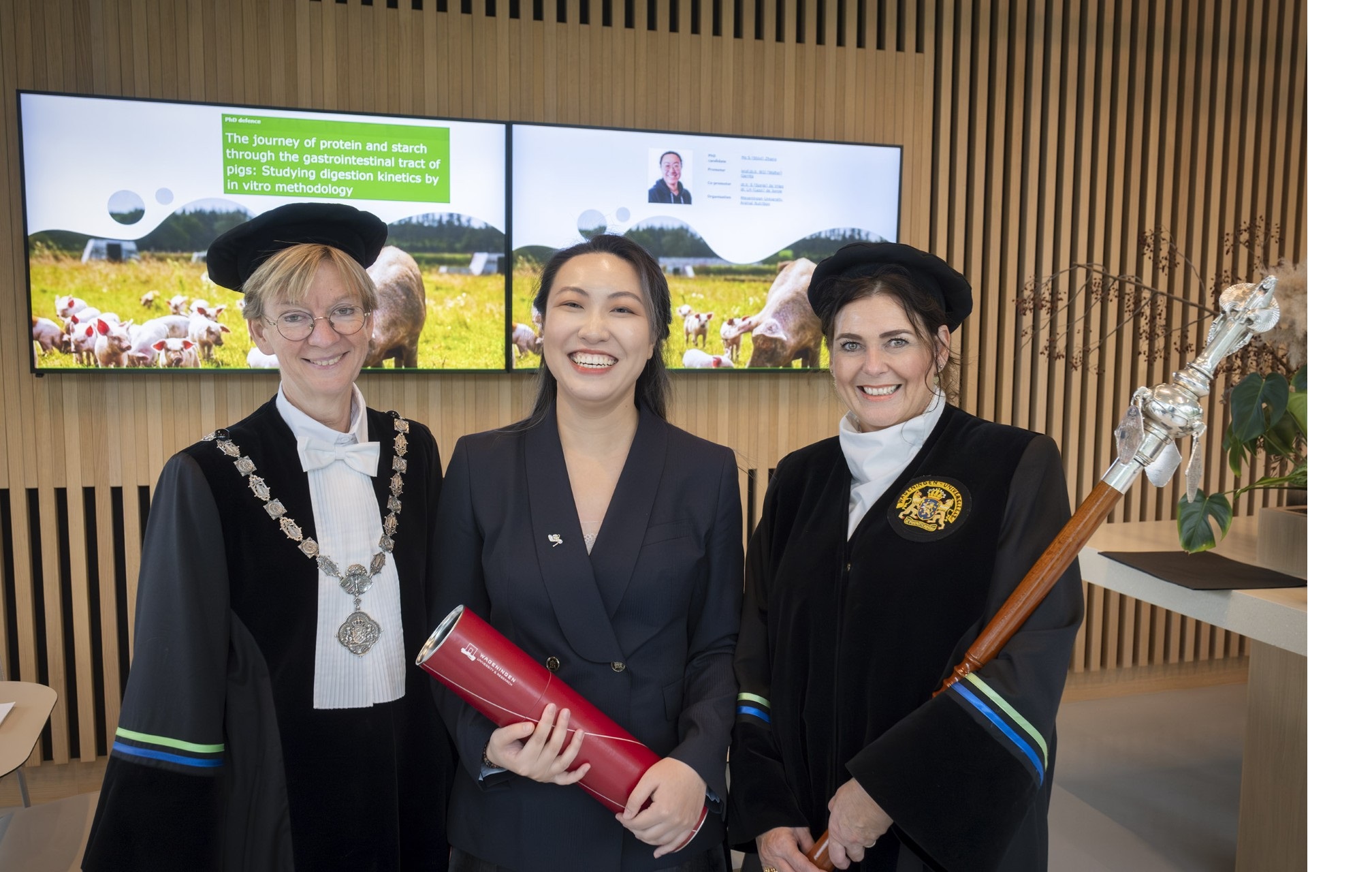You want to do a PhD at WUR and you have all the relevant knowledge of your field at your fingertips. All you need now is to find the funding to start your research. But how do you apply for a grant successfully? Resource asked some people who know the ropes for their top tips.
Tip 1: Help with writing
Research at WUR is divided into domains, which are represented by graduate schools. Our tip: find out which graduate school is active in your research field. Most of them offer an (honours) graduate programme for second-year Master’s students, in which you write a proposal for a PhD project with support from a coach. One or more of the proposals written in this way receive funding for implementation. If your proposal does not receive funding, you will still have gained valuable experience in preparation for an academic career. There are six graduate schools at WUR: Experimental Plant Sciences (EPS); Production Ecology and Resource Conservation (PE&RC); Advanced studies in Food Technology, Agro-Biotechnology, Nutrition and Health Sciences (VLAG); Wageningen School of Social Sciences (WASS); Wageningen Institute of Animal Sciences (WIAS) and Wageningen Institute for Environment and Climate Research (WIMEK).
Tip 2: Take your time
Applying for a grant is a time-consuming task. ‘It can take a year from writing a proposal to the final verdict,’ says Bart Pannebakker, associate professor of Genetics. Referees and the committee sometimes need as long as nine months to assess the proposals submitted. So it makes no sense to rush the writing process. ‘Take your time and make sure you have another, perhaps temporary, job on the side,’ advises Pannebakker. Or start while you are still a student.
Choose your supervisor carefully
The course called Research Master Cluster: Proposal Writing offers students who want to do a PhD the opportunity to write a proposal in a classroom setting. They receive advice from a scientist’s perspective, feedback from their fellow students, and writing tips from lecturers. ‘In consultation with their supervisors, students can choose to actually submit the written proposal. But even if they don’t, the course enables them to gain experience.’
Tip 3: The presentation
In most calls for research proposals, the application process ends with a short presentation followed by a discussion. This is an important moment, according to Dolf Weijers, chair of Biochemistry and a coach on the EPS graduate programme, with six successful proposals. ‘The presentation really has to be rock-solid. The candidate, supervisor, theme and project must all be well-matched. To achieve this, I recommend choosing a group and supervisor you get on really well with. If there’s a click there, it can be a lot of fun to come up with a plan together and it will be an exciting prospect to work with these people. Together, you can then choose a project that challenges you, but in which you are also sufficiently at home to see the both the big issues and the limiting factors. Take the process very seriously; a proposal has got to be good and convincing, both in the broad lines and in the detail. You don’t often get much time for the presentation, so focus on the core of your project.’
Tip 4: WUR network
If you want to apply for a grant, you need a supervisor; you have to submit the proposal together. ‘A supervisor only invests time in a subject that is in line with their research field.’ So make sure you orientate yourself thoroughly to the research at WUR and forge contacts with scientists. Show what you have to offer so you can get the scientist in question on your side. Theses and internships are the perfect opportunities to do so, but you can also expand your network by talking to different scientists. Such a network is also useful for internal talent calls. NWO (the Dutch Research Council, ed.) is a well-known source of research funding.
The presentation must be rock-solid
Unfortunately, it is a very competitive programme in which only two or three of every 25 proposals are honoured. You stand a greater chance of getting a grant through the graduate schools (see tip 1), but there is a catch: ‘Each chair group is often only allowed to submit one proposal per year,’ says Pannebakker. ‘A researcher only embarks on that procedure with the best student.’
Tip 5: Clear key question
Hanneke Suijkerbuijk, a PhD candidate in Entomology, worked at Marketing and Communications at WUR before deciding to do a PhD. ‘In retrospect, it was helpful to work in a different environment before starting my PhD because it helped me realize where are my strengths and weaknesses lie.’ Suijkerbuijk applied to the NWO’s Green Top Sectors graduate school for funding for her research. ‘It was hard to explain why I had left the academic world and now wanted to come back.’ It took her three months to write her research proposal. ‘I received feedback from my supervisor and also from a diverse group of people with different backgrounds and ideas. That helped me a lot. The two most important tips I have are: make clear how your research will add to the current body of knowledge, and ask yourself whether you and your team have the right skills to achieve that.’ Suijkerbuijk has a bonus tip: ‘Choose a project that interests you, work with people you enjoy collaborating with, and choose your supervisor carefully.’

 Text: Katerina Mouka, Nicole van ’t Wout Hofland, Monique van Schie. Illustratie: Shutterstock
Text: Katerina Mouka, Nicole van ’t Wout Hofland, Monique van Schie. Illustratie: Shutterstock 

